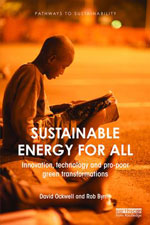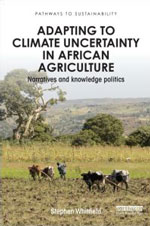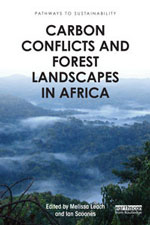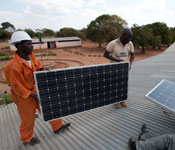 The 22nd session of the Conference of the Parties (COP22) to the UNFCCC took place from 7-18 November 2016. Read research and opinion from STEPS on what happens next.
The 22nd session of the Conference of the Parties (COP22) to the UNFCCC took place from 7-18 November 2016. Read research and opinion from STEPS on what happens next.
This year’s COP comes shortly after the Paris Agreement enters into force. The agreement aims to keep global temperature rise this century to under 2 degrees. Finance, technology and capacity building will all be important components in supporting developing and vulnerable countries to reach these goals.
COP22 takes place in Marrakech – drawing attention to the challenges and opportunities for African countries to join in efforts to respond to climate change. For pro-poor, sustainable change to happen, it will be crucial for developing countries in Africa and elsewhere to move from old models of technology transfer, towards building and nurturing innovation systems and capacities.
Commentary
Climate change: from talk to action in challenging political times, Melissa Leach, 21 November 2016 (Institute of Development Studies blog)
Research highlights
Journal articles
Improving technology transfer through national systems of innovation: climate relevant innovation-system builders (CRIBs) by David Ockwell and Rob Byrne, Climate Policy
Beyond technology and finance: pay-as-you-go sustainable energy access and theories of social change by Paula Rolffs, David Ockwell and Rob Byrne, Environment and Planning A
The Politics of Sustainability and Development by Ian Scoones, Annual Review of Environment and Resources
Books



Book: Sustainable Energy for All
How innovation systems can help poor countries provide sustainable energy for all their citizens – drawing on new theoretical insights and empirical research on solar energy in Kenya.
Book: Adapting to Climate Uncertainty in African Agriculture
This book by Stephen Whitfield examines the social, economic, political and climatic uncertainties that impact on smallholder agriculture in Africa and the range of solutions proposed.
Order this book from Routledge
Book: Carbon Conflicts and Forest Landscapes in Africa
This book examines how carbon forestry projects in Sub-Saharan Africa are unfolding, their effects and who is winning or losing from them.
Projects & themes
 Project: Pro-poor, low carbon development
Project: Pro-poor, low carbon development
What can those involved in climate innovation learn from the history of solar home systems in Kenya?
Theme: Innovation systems
CRIBs (Climate Related Innovation System Builders) could be a new way for the UN to help countries nurture low carbon innovation at a local and national level.
 Project: Low carbon innovation in China
Project: Low carbon innovation in China
The extent, nature and social implications of low-carbon transitions in China
Project: Political ecologies of carbon in Africa
How carbon trading, forestry and offset schemes work and affect people in sub-Saharan Africa.
Project: Uncertainty from below
How people in climate-vulnerable areas of India understand and respond to climate change